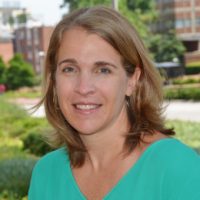Gillings School redoubles efforts on implementation science and HIV in South Africa
August 20, 2019
What connects South Africa, the global HIV/AIDS epidemic, and public health teaching and research?
Two words: Implementation science.
It’s a hard term to pin down — ask five experts and you might get five different definitions — but implementation science is, at its core, the study of how to implement research findings on effective interventions into routine health care and public health practice. In other words, it’s about closing the gap between knowing and doing, between when discoveries that would benefit people’s health are made and when they are put into wide practice.
At the UNC-Chapel Hill Gillings School of Global Public Health, more than 100 faculty and researchers work in implementation science. Since 2014, two researchers in particular have collaborated with faculty at the University of the Witwatersrand (known as Wits) to create the first implementation science degree program in South Africa.

Dr. Rohit Ramaswamy

Dr. Audrey Pettifor
The project, led by Audrey Pettifor, PhD, professor of epidemiology, and Rohit Ramaswamy, PhD, dual professor of maternal and child health and public health leadership, is funded by the National Institutes of Health’s Fogarty International Center. To date, Pettifor and Ramaswamy, in collaboration with their co-primary investigator Tobias Chirwa, PhD, head of the School of Public Health at Wits, have successfully founded the degree program and guided three cohorts through to graduation.
This spring, Fogarty renewed their grant for five more years.
Between 2015 and 2018, the program trained nine Wits faculty members, 33 master’s and five doctoral students from South Africa and eight other sub-Saharan African countries, and 108 professionals from the South Africa Department of Health and local nongovernmental organizations (who enrolled in one or more courses for non-academic credit).
A parallel grant from the World Health Organization (WHO) enabled non-South African students to participate in the program, as well. A key requirement was that WHO-funded students had to return to their home countries for a field practicum. The Wits and UNC faculty also trained field supervisors in those home countries, extending the reach of the UNC/Wits collaboration across the African continent.
With support from the renewed grant, the researchers now aim to establish the Wits School of Public Health as a sustained center of excellence in implementation science training and support. Wits faculty have taken full ownership of the degree program and are independently leading it into the future. Simultaneously, UNC and Wits are partnering to offer research mentoring to 10 fully-funded South African doctoral students, as well as to provide training to HIV researchers in four partner institutions who will expand local expertise in implementation science and HIV research.
“In order for South Africa to make progress in fighting the HIV epidemic, it is critical that local barriers to implementation of programs and evidence-based interventions at all stages of the HIV treatment cascade be identified and addressed by contextually appropriate solutions,” Ramaswamy said. “These solutions can only be developed by field based researchers and practitioners working together to create, test and adapt strategies for sustained implementation and scale up. The second phase of the UNC/Wits collaboration will move implementation science training from the classroom to the field to situate expertise close to where it can be put to immediate use.”
Read more about the beginnings of the UNC-Wits partnership on implementation science.
Contact the Gillings School of Global Public Health communications team at sphcomm@listserv.unc.edu.
